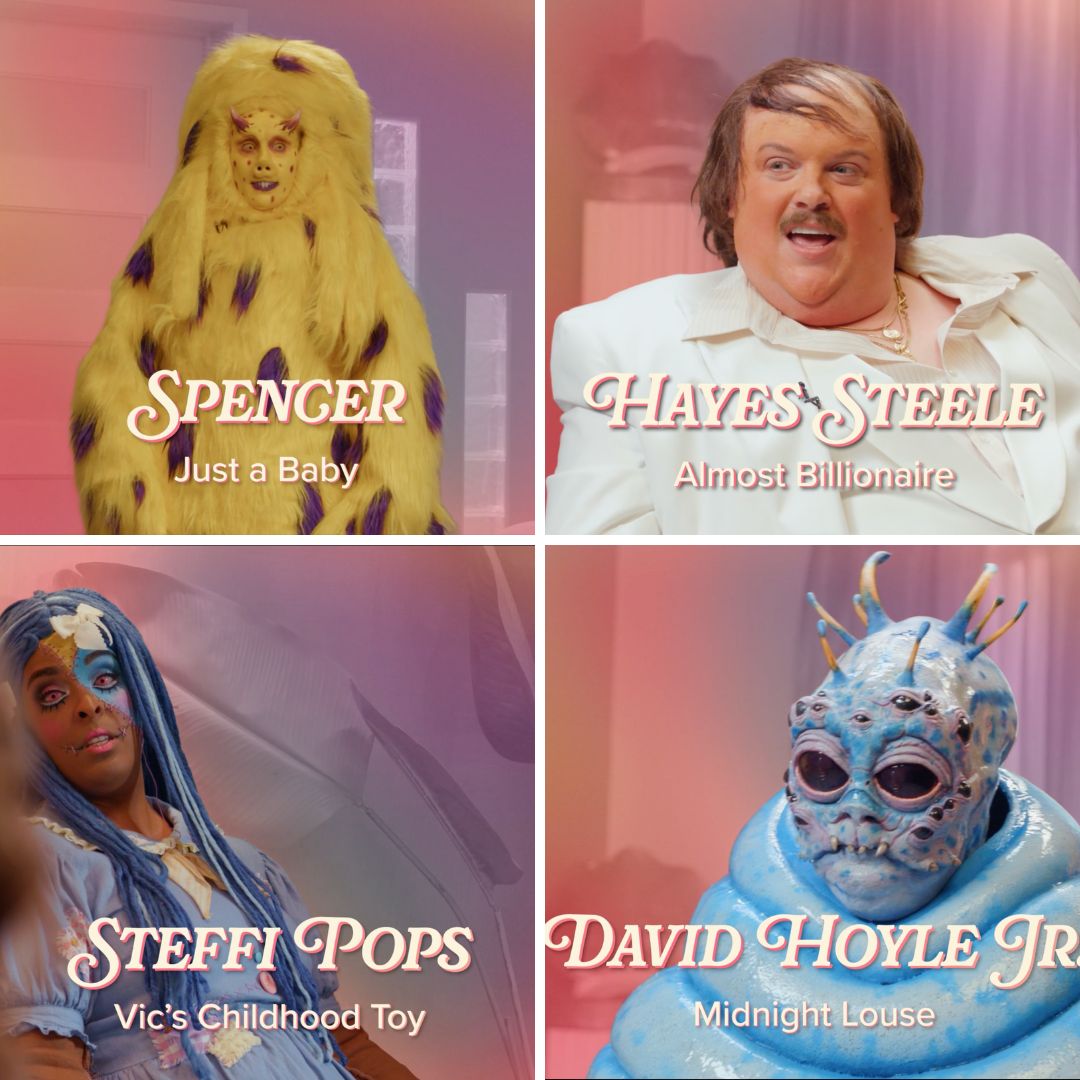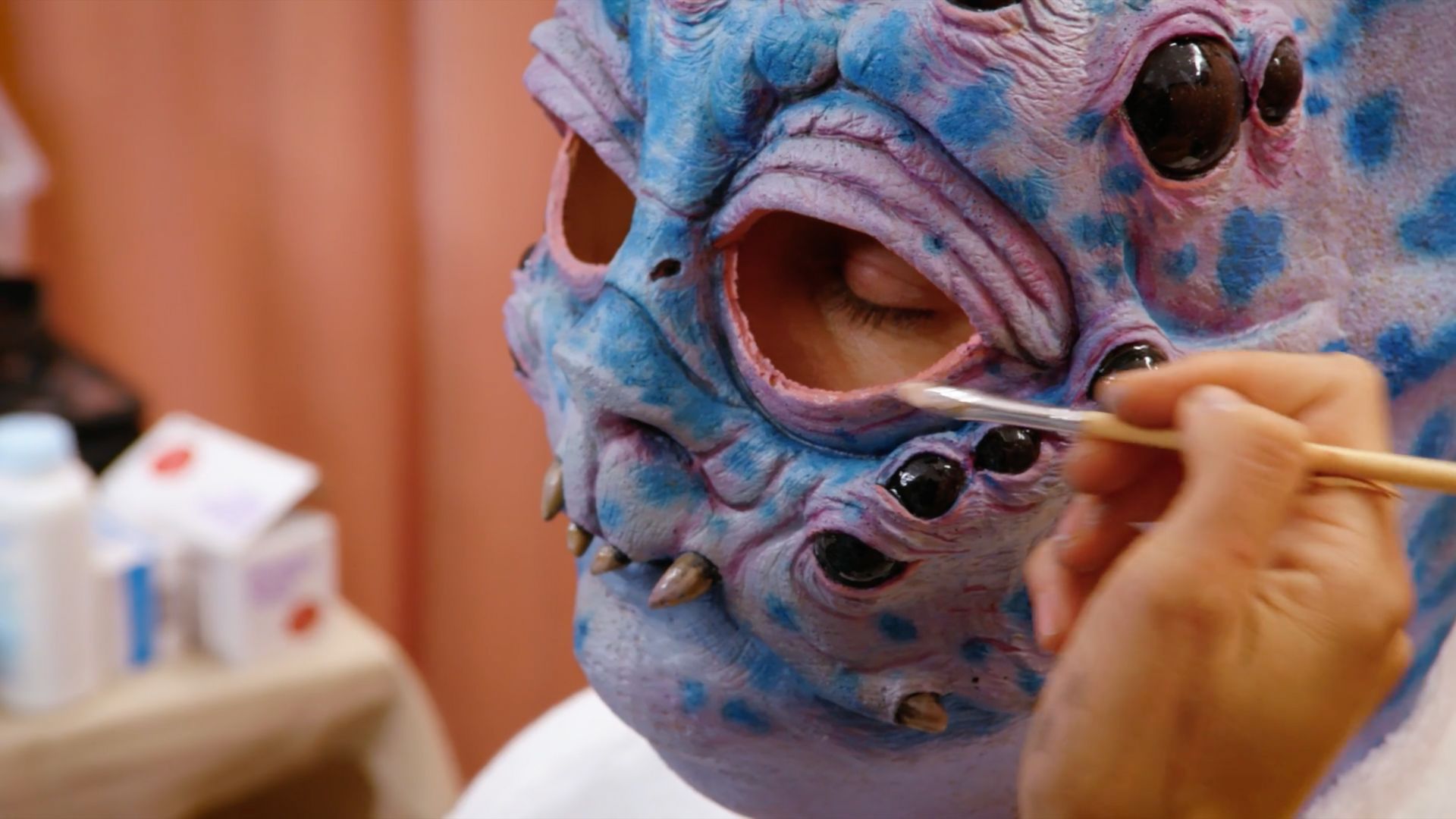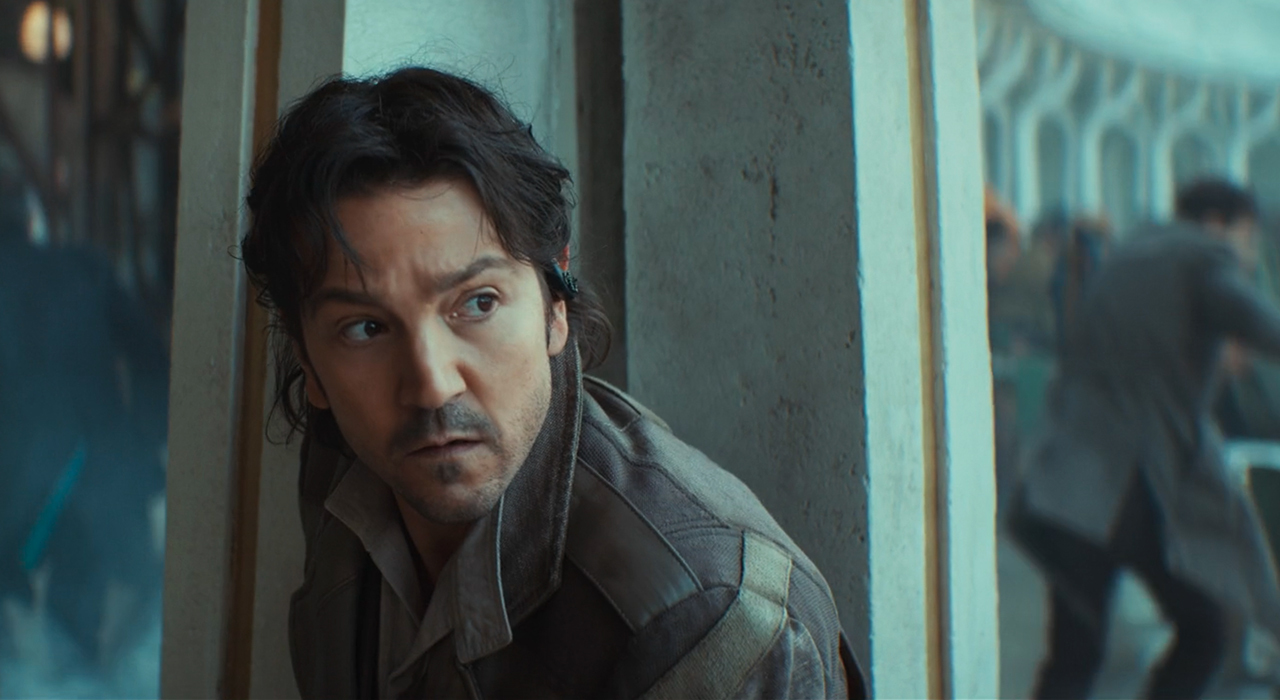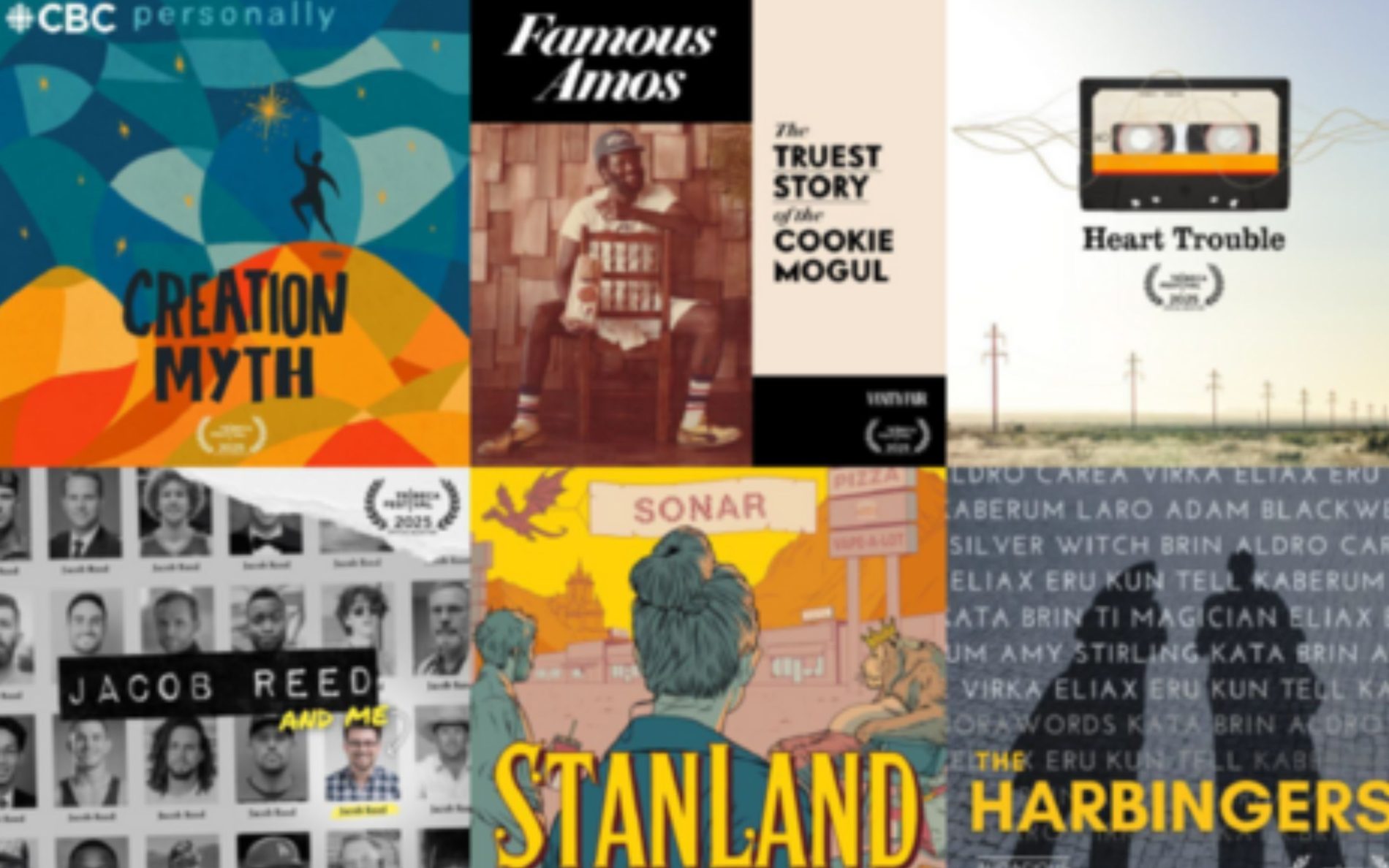Imagine, just for a second, that you have put in the work to become a master improviser and a professional comedian. You are presented with the opportunity to come to a slightly ‘80s Barbara Walters by way of public access television looking-set, and either be completely transformed with makeup/prosthetics and then come up with a character to be a guest on an interview show, or play the stressed, buttoned-up interviewer who has no idea who their guest is. Vic Michaelis would choose to be the voice of reason, every time.
So, it’s good that Michaelis is the host of “Very Important People,” the improvised interview series on Dropout. It’s a show that can go a lot of different ways — and does, from the fictionalized Host Vic (Michaelis) being visited by a cursed childhood doll (Corin Wells) or a man who has been frozen in ice until just a few minutes ago (Bobby Moynihan) or a merman with very particular dating standards (Echo Kellum).
But the choices that the “Very Important People” creative team have made in building the sandbox in which its comedians play ensures that each episode maintains the spirit of live improv while still having enough continuity to fuel enough Reddit threads and Wikis to keep us invested in Michaelis’s host character as their reason gets stretched to a breaking point.
Director and executive producer Tamar Levine didn’t come from an improv background herself, but sees the work of crafting the show as tapping into the same well-honed senses of timing, setup and payoff that the on-camera improvisers do. “The edit is a form of improv in itself,” Levine told IndieWire on a recent episode of the Filmmaker Toolkit podcast.
“ We have a lot of material that we’re working with. The interview itself is about an hour of run time, and the great thing about being able to do this for a second season is the first season, we were all kind of flying by the seat of our pants. I don’t come from an improv background, and I was so lucky to have, quite literally, an improv genius as the host of the show that I was directing,” Levine said.
“I Venmo her $25 every time she says that,” Michaelis told IndieWire in the same Filmmaker Toolkit episode, for additional comedic context.
“Actually, it just came in. Thank you,” Levine added.
Leaving aside how big a line-item the show’s complements budget must be, blending improv with cinematic tools is what allows for the delightful strangeness, sense of infinite possibility, and spiral toward either something really funny or an expression of the existential hellscape which Host Vic has built for themselves through their own ambition to be a serious interviewer. Michaelis said that the makeup job each guest gets done is like nothing so much as a suggestion from the audience at an improv show.

“Ify [Nwadiwe], his character Denzel, was an alien. We don’t know anything about that alien, you know what I mean?” Michael said. “Building a character — like, a dog is a dog, but is it a happy dog? A sad dog? There’s so much to be discovered. And that, to me, is the improv. The makeup is our version of the suggestion we’d get from a live audience.”
Like any audience suggestion, that means the makeup can go to wildly unexpected places, as a function of both pure inventiveness on the part of the comedians in each episode and the playful collection of props and toys the show offers up to them.
For instance, Michaelis pitched a makeup to recreate the tree with a face from the Rainforest Cafe (nixed because the green wouldn’t work with green screen elements), which led to makeup department head Alex Perrone pitching the same nature element, but a collection of rocks. Nobody expected that the performer assigned to the look, Anna Garcia, would take what could be an awakened mountain or a rejected superhero and gravitate toward a skateboard on the props shelf set aside for a different look entirely. But Garcia became Zeke, a fourth grader who found a genie and wished to turn into rocks and skateboards.
As a director, Levine tries to gently guide, rather than control, that chaos. “[Directing the show] is looking at this funny stuff happening and saying, ‘OK, I know for the edit I need some climax or I need a problem to be solved or whatever it is.’ In Season 1, we kind of improvised, not really knowing how I was going to get there but knowing I needed certain things,” Levine said. “Then [in] Season 2, it was really great to be able to say, ‘OK, what worked in Season 1? What didn’t? We need a narrative arc, but we can also have a lot of fun in post, we can go a little crazier with VFX, and we can go a little crazier with the sound design.”

Along with the show’s producers and editor Eve Hinz, Levine and Michaelis have also gone a little crazier in Season 2 with how the details of Host Vic’s life impact the show and inform the comedy, giving “Very Important People” an element for viewers to return to again and again, in addition to the unexpected joy of the improv interview. Host Vic’s kind of cheesy, kind of try-hard, nostalgic vibe escalates into an increasingly desperate quest to translate the show’s actual 2024 Audience Choice Webby Award into something more ‘respectable.’
“Very Important People” does a fantastic job of heightening those little character beats (and an increasingly open revolt by Host Vic’s crew) while finding the perfect pairing of performer and makeup look. “We were so lucky to have not only some really killer improvisers, but we also had standups and comics and actors this season that were really spectacular, but also didn’t necessarily speak the same improv language,” Michaelis said. “But you don’t necessarily need to in order to have a strong point of view. [Helping to pair comedians] was a cool element of it this season.”
“This season, I think we did lean more into this kind of genre-bendy type of thing, where every episode had a very specific point of view,” Levine said. “So I think knowing that that works — for me, just being able to lean in even more, [I’m excited] to lean into that in Season 3.”
All episodes of “Very Important People” are now streaming on Dropout. To hear Vic Michaelis and Tamar Levine’s full interview, subscribe to the Filmmaker Toolkit podcast on Apple, Spotify, or your favorite podcast platform.



